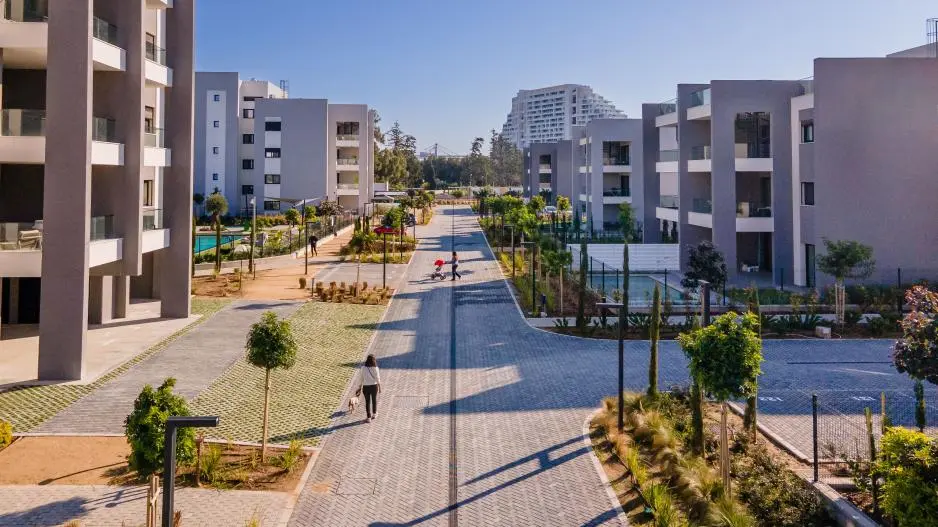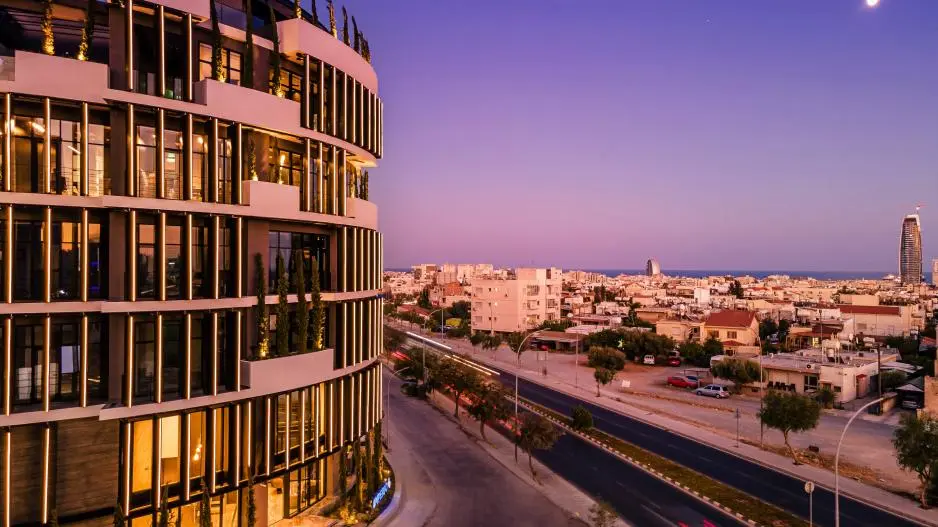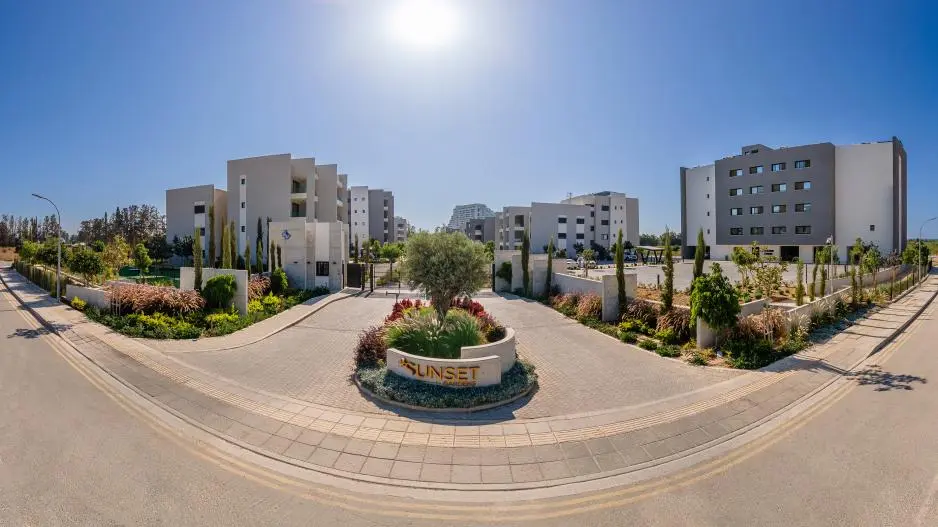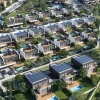Imperio Founder & Director on Redrawing the Lines of Cyprus Real Estate
Yiannis Misirlis, the Founder and Director of Imperio Properties, has played a significant role in the development of Limassol’s real estate landscape. Established in 2004, Imperio has focused on creating properties that blend modern living with quality and design. The company has been recognized for its distinctive projects, and has crafted a distinguished portfolio of properties, each echoing a commitment to superior design, quality, and value. These properties are not just buildings but beacons of contemporary lifestyle, reflecting Imperio’s dedication to enhancing the quality of life in Cyprus.
In this interview, Yiannis Misirlis discusses Imperio’s progression over the last 20 years, touching on the company’s strategy and key projects. He explains how Imperio has adapted to market changes, focusing on sustainable development and responding to the industry’s ‘Great Repricing’ due to environmental considerations. Misirlis also shares insights into current trends in the Cyprus real estate market, with a particular emphasis on Limassol. He explores the increasing interest in sustainable and eco-friendly properties and how this aligns with Imperio’s projects, such as the Imperio House and Sunset Gardens. Additionally, Misirlis speaks about the challenges and opportunities in balancing housing supply with environmental and quality standards in urban development. Looking ahead, he offers his perspective on the future of housing and the construction sector’s shift towards more sustainable and efficient practices.

Over the past 20 years of successful operations, we have managed to make every single one of our projects stand out through innovative features, which distinguish us from the competition. Imperio, a pioneer in sustainability in Cyprus’ real estate sector, has always something new to offer through its projects, either in terms of architecture or interior design, with awards at pan-European level being an honour for the company and strong evidence of its innovative nature.
Imperio boasts an impressive portfolio of 99 successfully executed projects, spanning to both commercial and residential developments. Guided by an unwavering vision, Imperio strives to weave sustainability and ingenuity into every project. Imperio’s ambition goes beyond mere construction; it aspires to develop properties with inherent value, elevating the very communities they become a part of, enriching society as a whole.
At Imperio we design and create projects that meet the needs of investors and residents alike, and offer a high quality of life, while following new trends and paying attention to the needs of the market. At the same time, we continue to focus on sustainability, ESG and sustainable investments, all of which are already applied to our projects. We believe that designing innovative, modern real estate is not enough. The real challenge for us is to make a difference to people’s lives by deeply understanding their needs and fulfilling their dreams. This is our main objective as we proceed with the implementation of new projects.
You mentioned the “Great Repricing” due to shifts in ESG awareness and rules. How is Imperio bracing itself for these changes, especially with the increased focus on sustainability?
As the Great Repricing unfolds, opportunities will arise for real-estate stakeholders, who understand how climate-related factors affect their portfolios and asset values and can respond in ways valued by tenants, lenders, and investors.
Climate-responsive strategies will help set us apart across the value chain. Companies that create reporting systems to support tenants, lenders, and investors in meeting their disclosure requirements will be more attractive as both partners and landlords. Landlords that help tenants reduce their carbon footprint through renovations and the installation of lower-carbon building systems, solar panels or EV chargers, may gain a competitive edge. Low-emission and low-risk individual buildings will also stand out in the real estate market. Therefore, climate-intelligent real estate developers will stand out from the competition.
Imperio is moving towards this goal, implementing projects whose main feature is sustainability, and aim at having a positive impact on the environment. One of these projects is Imperio House, the first Net Zero office building in Limassol, which can produce more energy than it consumes, meeting its energy needs entirely from renewable sources.
In addition, Sunset Gardens, Limassol’s first gated community and one of the most sustainable residential projects in Cyprus, is a prime example of ESG criteria implementation, which have been an integral part of our activities.

Sunset Gardens combines luxury with eco-friendly practices. Can you present its green features? Also, as the first gated community in Limassol, what prompted this concept and what benefits and challenges do you expect with such developments?
Imperio’s Sunset Gardens is Limassol’s first gated community and one of the most sustainable residential projects in Cyprus. Developed in the rapidly growing area of Western Limassol, it is in close proximity to the largest casino-resort of the Mediterranean. The project, which boasts over 300 apartments and is expected to be completed by the end of this year, is a prime example of green development. Among other things, it features PVs that will power all its common areas (swimming pools, tennis courts, padel courts, streets, etc.), a sewage treatment and water supply system for its vast green areas (40,000 trees and plants), as well as a waste management system.
Real estate can help companies meet their targets to reduce carbon emissions, while encouraging tenants to make bigger investments in climate-ready real estate assets because of the long-term savings that stem from mitigating climate and regulatory risks. Insurance costs, utility costs, and other relevant costs (such as repairs and maintenance) could decrease in such buildings due to better infrastructure resilience.
In turn, these assets could have a higher value in practice, because of higher returns and favourable operating cost profiles.
In the bigger picture, which regions or types of properties are seeing the most demand in Cyprus right now? Why?
Limassol has emerged as the real estate hotspot of 2023, securing 35% of all property transactions. This trend is not a one-year wonder; it began in 2022, which demonstrates the city’s sustained appeal. Limassol is followed by Paphos (23%), Larnaca (19%), Nicosia (18%), and Famagusta (5%). Limassol also boasts Cyprus’ largest port and offers a wide range of premium properties, mainly luxury apartments.
There is a growing interest in sustainable and eco-friendly properties, reflecting a global shift towards environmentally conscious living. The requirement to adopt environmentally-friendly practices in real estate is expected to become more prevalent in the coming period due to increased demand. Millennials, who are currently the most important segment of the market, are environmentally sensitive and prioritise sustainability, energy efficiency and quality of life when deciding to buy a property. At the same time, demand for green business properties is also increasing, due to the growing trend of ESG adoption.
With the Green Tax Reform currently being developed in Cyprus, how do you anticipate it will influence the real estate sector, especially for developers like Imperio?
Green Tax Reforms typically aim to incentivise environmentally friendly practices and discourage activities that contribute to environmental degradation.
In the context of real estate, such reforms could potentially impact developers in several ways. They might face increased costs if the reform introduces taxes on carbon emissions, energy consumption, or other environmentally harmful practices. On the flip side, there could be financial incentives or tax breaks for eco-friendly construction methods, energy-efficient buildings, or the use of renewable energy sources.
Additionally, consumer preferences are shifting towards sustainable and environmentally conscious choices. Developers who adapt to these trends will benefit from a growing market for green buildings, potentially boosting demand for eco-friendly real estate.

You’ve advocated for increasing housing supply as a solution to the affordability crisis. Do you foresee any risks of loosening quality and environmental standards in the pursuit of meeting demand?
Sustainable building practices and energy-efficient designs are essential for mitigating the environmental impact of urban development. Balancing the need for increased housing supply with maintaining a high quality and environmental standards is crucial in order to create sustainable and liveable communities. It requires a thoughtful and holistic approach that considers not only short-term housing needs but also long-term environmental and societal impacts.
To enhance the quality and sustainability of construction practices, a multifaceted approach is crucial. Firstly, regulatory frameworks must be fortified and further clarified, ensuring stringent adherence to building and environmental standards.
Simultaneously, incentivising sustainable practices is pivotal. Offering investors and developers tangible benefits such as tax breaks or grants, fosters a culture where they will want to meet quality and environmental benchmarks, thus promoting responsible construction.
Transparent certification systems play a pivotal role, providing consumers with informed choices and motivating developers to strive for elevated standards. This not only instils confidence but also cultivates a competitive environment centred on sustainability.
Additionally, a robust monitoring and auditing system should be established. Regular inspections ensure ongoing compliance, promptly identifying and rectifying any issues.
By combining regulatory measures, incentives, and a future-focused perspective, Cyprus can increase its housing supply without compromising on quality and environmental sustainability. This integrated approach ensures that current housing solutions pave the way for resilient, sustainable, and vibrant communities in the years ahead.
And lastly, how do you envision the homes of the future, say 50 years from now? What key features or designs do you believe will be predominant?
The era we live in has shown that even the slightest prediction, not only for the distant but also for the near future, can be risky. But life does not stop, nor does man stop dreaming of a better future for society and the common good.
The future of the construction sector will focus on sustainability and efficiency. The global construction sector is responsible for 40% of emissions released into the atmosphere. The concrete industry alone produces 2.8 billion tonnes of carbon dioxide and accounts for one tenth of the total amount of water used for industrial purposes. The construction sector must move quickly to the next era.
Construction will be more sustainable in terms of energy sources and material use, avoiding almost any waste. Some countries are already making progress in this direction, using timber, other natural products or even recycled plastic, replacing steel and concrete.
Tenants and investors will start looking out for emissions figures, risk disclosures, and emission-reduction plans. In the very near future, as climate change becomes more apparent, they will likely want to work with real estate companies that can provide reporting on current emissions and risks as well as solutions for their reduction.

What: Imperio Properties
Where: Limassol, Cyprus
More Info: imperioproperties.com
Who: Yiannis Misirlis is an entrepreneur, founder and director of Imperio Group, one of the most reputable property development and management firms in Cyprus, with studies at UCL in London and the Instituto de Empresa (IE) in Madrid. Mr Misirlis serves as Deputy Chairman of the Cyprus Land and Building Developers Association (LBDA). He is also a member of the Board of Directors of the Cyprus Chamber of Commerce & Industry (CCCI), where he serves as Chairman of the Real Estate Committee, working to promote sustainable growth and development in the region.
Source: ffwd.com.cy





